German Institute for Research Communication (DIF)

All communicative solutions from a single source: presenting science and research crystal clear - reaching people - providing communication tools.
"Science and research are systemically relevant for society. But only if all parts of society can understand what research and science achieve can public trust be achieved in the long
term."
(Dr. Ralf Schneider, Managing Director of the German Institute for Research Communication)
The needs of science and research:
Today more than ever, science and research have a duty not only to plan and realise new findings and results in a targeted manner, but also to communicate them to others and make them understandable. This applies to the narrower and wider circle of the "scientific community" as well as to politics, business, the media and increasingly to the interested public.
Every research team in universities, research centres or the R&D departments of research-based companies is essentially confronted with similar challenges in planning and implementing its communication:
- One's own approaches, progress and results have to be communicated to many sub-target groups with different levels of previous experience and competence
- Any research communication must take place in close networking in order to be successful - with related but not identical research areas as well as with regional and national institutions and a European or global research community.
Solutions of the DIF
The DIF is familiar with all the requirements and necessities of modern research communication - those internal to science as well as those that "external partners" in politics, business, media
and society place on research institutions in universities and non-university institutions.
Our goal is to provide our clients and partners with exactly the knowledge and skills they and their teams need to meet the high demands of modern, professional research communication.
THE SERVICES
Our focus:
We develop solutions for communication that help researchers, scientists, institutes and universities reach out to their colleagues, stakeholders, policy makers, and to society at large.
This means:
We start with an in-depth analysis of the situation and the requirements. We provide targeted advice for future action. We develop wordings together and provide the tools to make research and
science tangible, comprehensible, transparent and thus more successful.
Our holistic approach helps people help themselves in communication, to advise them at eye level, and to train them in all kinds of communicative situations.
Our clients receive the services of an institute that constantly keeps an eye on the communicative processes in the environment of research and science, speaking both the languages of science,
and of the media and digital channels. This distinguishes the Institute from agencies and other communication service providers.
We are the voice of research and science.
Researchers in DFG projects are now effectively required by the state to publicise and explain the results of their research - an increasing requirement for the allocation of public funds in more
and more organisations.
We help with the planning and realisation of this public relations work. To this end, we train scientists and communicators of the institutions and show them ways to access and use the media. We
find the right formats for the respective target groups of science and research - whether classic interviews or posts on social media channels.
Website editing, selecting and populating social media channels, creating good, concise, informative and technically correct texts, producing and using simple video clips and audio
interviews.
But beware: in the rapidly growing jungle of online-based channels and tools, you can also get hopelessly lost - and lose a lot of time, efficiency and nerves. It is important to
be able to distinguish: What is really necessary and helpful for my unit and its communication goals? Which skills does the internal communications team itself really need to master - and when is
it better to rely on external service providers? How do you find and brief them, how do you understand and evaluate their (often quite cryptic) offers?
Implementing external communication:
Generating emotions and images, developing messages and telling stories - we connect the relevant channels in the world of research, bring the right minds together and develop creative concepts
based on data and insights.
The result: holistic communication that sharpens profiles and creates an image.
Because: it is becoming increasingly important to show that research results are not produced by anonymous institutions, but by flesh-and-blood people. If citizens know which
researchers are behind a scientific study, what drives them and how they work, this strengthens their credibility. Formats that vividly portray the personality of researchers are powerful. That's
why we also take care of open lab door days or a science slam, but also videos on social media platforms.
In the event of a crisis, we are of course also crisis specialists and fact-checkers thanks to our experience. Since Covid-19, it has become clear even to students of natural sciences in their
first semester that science and research are suddenly brought into the public eye in the event of a crisis. In an emergency - and preferably beforehand as a safeguard for the worst-case scenario
- our experience helps to classify situations, to train upcoming possible questions and to provide those affected with a toolbox of wordings, rules of conduct and individual cues (right down to
voice and body language).
Podcast: The important SciRENA Tool for scientific institutions

OUR TRAINERS
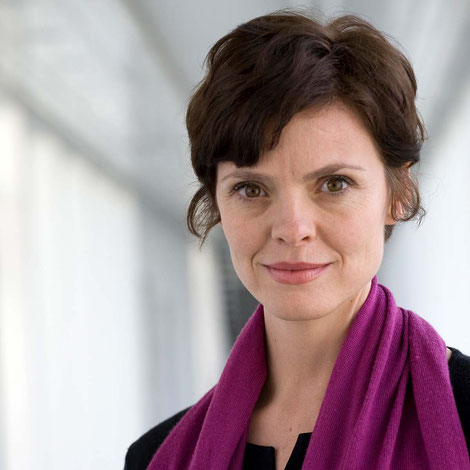
Margarete Arlamowski
Trainer with a focus on "owned media", online, social media, user typology.
Margarete Arlamowski is a highly requested social media expert with a focus on the psychology of communication. She worked as editorial director of various digital channels at Hubert Burda Media
and Gruner & Jahr. Margarete Arlamowski advises and coaches companies and institutions such as BMW, the Munich Oktoberfest, the European Parliament and the Munich Police Department on
community management and digital crisis communication. She is a lecturer at the Ludwig Maximilian University in Munich and the German School of Journalism, among others.
In her training courses, she shows what is important for successful communication in social media: for example, how to gain organic reach and build a loyal community, or how to manage crises.
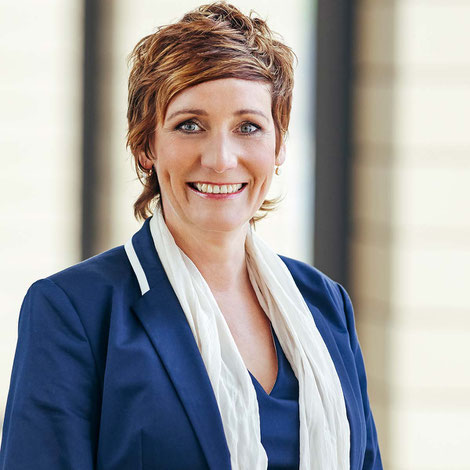
Angela Elis
Trainer for "Effective Communication & Successful presentation" in front of cameras, on video or on stage. Further topics: Messages, personality, voice, stage fright.
Angela Elis has been working very successfully as a TV presenter and coach for 25 years. Among other things, she has presented the science and future magazine "nano" on 3sat as
well as different programs on ARD and ZDF. Additionally, she has been working for years as a coach, consultant and trainer for personalities from research and science, from business (e.g.
executive boards) and politics (e.g. federal ministries). She provides support in finding effective content and messages as well as in dealing with excitement and stress, or in overcoming
personal inhibitions and blockades, right through to confident and charismatic presentations at online events, in front of cameras, on video or on stage, as well as in front of employees and
similar target groups.
Angela Elis supports her participants in communicating and performing more convincingly,as well as feeling confident and comfortable in their presentation setting.
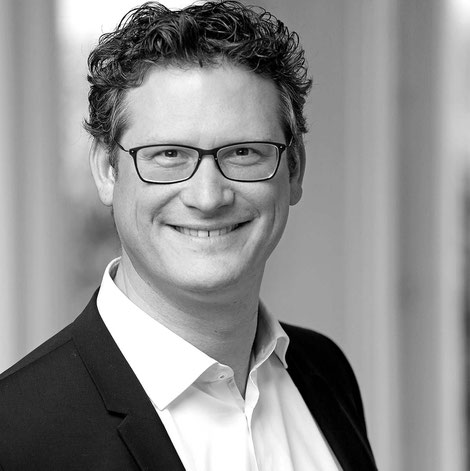
Hannes Fischer
Trainer with a focus on pharmaceuticals/research, trade media, communication strategies, service provider selection and provider coordination.
After studying communication sciences, Hannes Fischer worked for online portals and Germany's largest advertising and PR agency, Serviceplan. For several years he worked as media
and PR manager for the pharmaceutical company STADA. As an independent entrepreneur, he has been advising clients from the healthcare industry for over ten years, from dental and Rx to medical
products and OTC brands to clinics and associations. This has also led to his work as a lecturer in cross-media at private universities and as a media trainer.
In his training courses, he teaches how to deal with trade media, the preparation of more complex content, the basics of messages and communication strategies, the right selection and controlling
of agencies and other service providers.
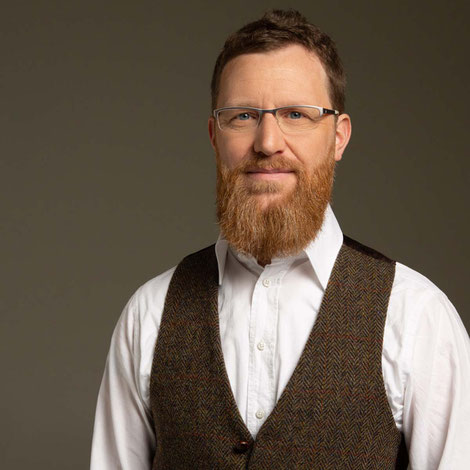
Stephan Goldmann
Trainer with focus on digital channels, content, copywriting for the web, SEO, blogs
Stephan Goldmann is a specialist in digital communication. The former editor-in-chief at the computer magazine CHIP trains, among others, Deutsche Telekom, Daimler, Lufthansa
Systems, Betriebskrankenkassen Landesverband Bayern or MairDumont (Lonelyplanet.de). He is a lecturer at the Academy of the Bavarian Press and the Academy of Journalism. Goldmann is the full-time
managing partner of sayang.gmbh, chairman of the Bloggerclub e.V. and continuously trains on digital topics.
He teaches his seminar participants how to prepare the right mix of attractive content together with the right media form. Whether technical information as podcasts or as "explainer videos" or
storytelling with success stories as motivation for employees. Stephan Goldmann takes care of the implementation of complex content.
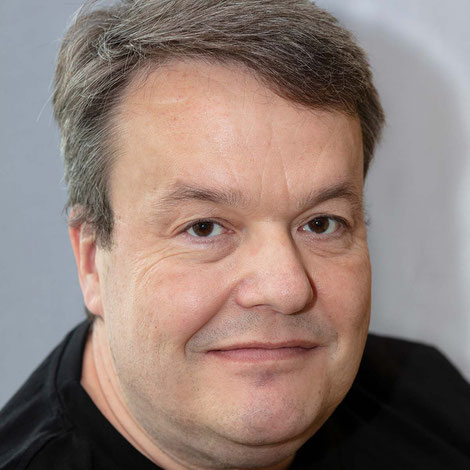
Ralf Krämer
Trainer with a focus on technology, interviews, wordings and crisis preparation.
Ralf Krämer worked for 15 years as an editor in the fields of technology, politics and business at the news magazine FOCUS, at Motorpresse Stuttgart and at Computer-BILD.
He was also press spokesman at the telecommunications company tesion (swisscom), head of public affairs at the real estate corporations Deutsche Annington and the GAGFAH Group (today merged to
vonovia), where the PR team was awarded Spokesman of the Year by the German Association of Press Spokesmen.
Whether explaining building physics to previously identified stakeholders or explaining technical details of mobile phone masts to critics - Ralf Krämer knows the advantages of simple, effective
forms of presentation. He has experience in unexpected crisis situations and can work out perfectly fitting wordings with his training participants that reinforce competence and credibility in
every communication situation.
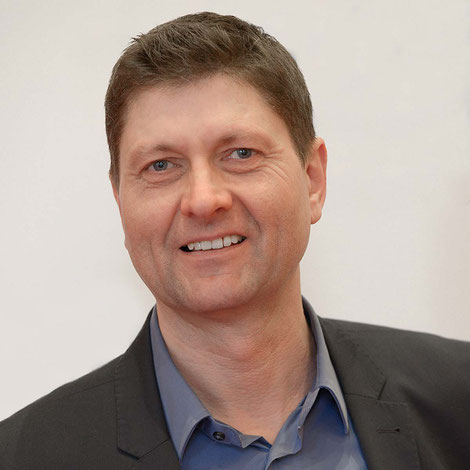
Gunther Schnatmann
Trainer with a focus on research storytelling and a confident appearance.
Gunther Schnatmann studied economics at the GSBA/ETH in Zurich and completed his education at the German School of Journalism. He was an editor for over 10 years, first at tabloid
newspapers and most recently at the news magazine FOCUS. For over 20 years, he has worked as a media trainer and specialist for storytelling and impressive wordings, especially in the IT and
science sectors.
Among others, he has trained executives from Cisco, Oracle, Secunet, the German Aerospace Centre, the Fraunhofer Institute for Cognitive Systems, the Gesellschaft Sonderabfall-Entsorgung Bayern
GSB as well as MBA students, employees and professors of the Ludwig Maximilian University and the Technical University of Munich.
Dr. Ralf Schneider
Trainer with a focus on science communication, crisis management, board communication and political consulting.
Dr. Ralf Schneider is a psychologist, TV director and journalist. CEOs of various research-intensive companies and DAX-listed corporations, well-known scientists and university professors,
ministers and prime ministers, all seek his advice. Dr. Ralf Schneider is President of the Association of European Journalists as well as a permanent communications consultant for state
governments within the EU and for leading national and international associations.
With tact and experience, he helps his clients to master crises ranging from product recalls and medical malpractice to disputes with science-critical NGOs. One example is the Garching research
reactor FRM II. Numerous publications complete his competence profile.
CONTACT
Are you looking for a partner to guide you safely through communication challenges?
Classic need:
- You need clear wordings for your press releases and TV statements.
- Your protagonists (from science, management, public relations) should get to the heart of the issues and convey your messages authentically in interviews.
- Your institute needs to communicate a research result to stakeholders and society via both trade and public media.
- Your company would like to train development managers/engineers from R&D as authentic interview partners for trade media.
- You would like to be able to stand confidently in front of the camera in critical situations or to react quick-wittedly to questions in a talk show.
- From your point of view, your protagonists have messages and dealings with the media down pat. But there is still room for improvement in voice and body language for a competent performance.
- You would like to present research results better and more comprehensibly with words, graphics, photos, and moving images via all relevant channels for both the internal and external public.
- Your institution would like to use the social media channels professionally.
- You would like to, or have to, commission external service providers for your communication measures - and are looking for support from a competent neutral party for the selection and management.
Please contact us and we will provide you with a non-binding offer that is tailored to your unique and specific needs:
DIF Deutsches Institut für Forschungskommunikation GmbH
(DIF German Institute for Research Communication Ltd.)
Kerschlacher Str. 4
D - 81477 München
Phone: 0049 - 177 522 485 0
